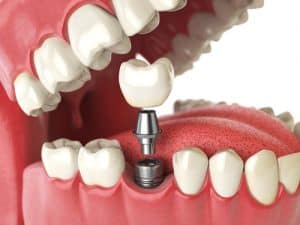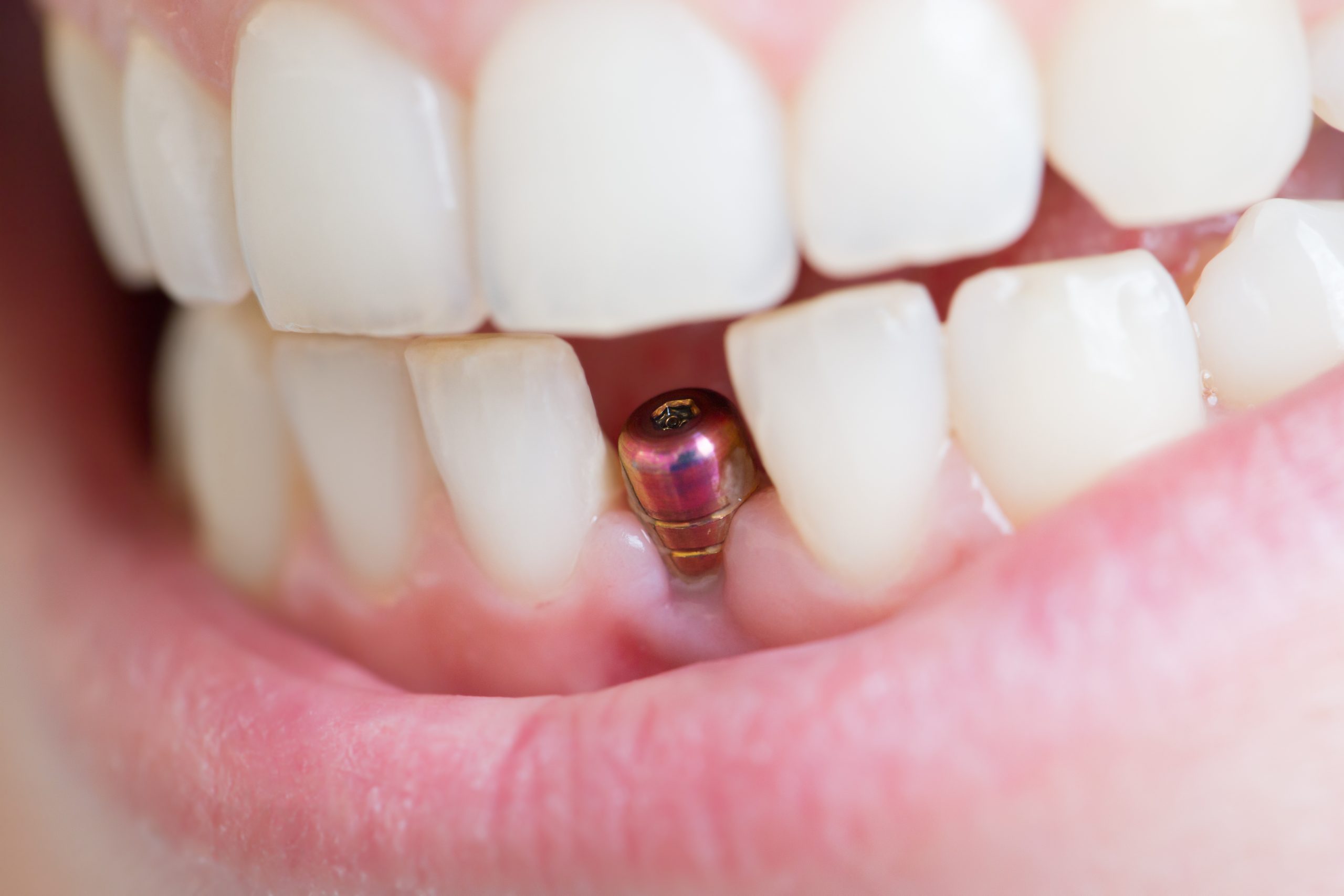If you’re considering dental implant treatment because you’re missing one or more teeth, you need to ensure that your jawbone density and strength is adequate to support the implant. If your bone is too soft or weak, it will not be able to support the implant and you can benefit from following these tips to reduce bone loss for missing teeth.
Dental implants are surgically infused in the jawbone beneath the gum. This is completed with a metal cylinder placed in the jawbone, with an abutment screwing it into place. Finally. an artificial crown is then placed on top of the abutment.
Your jawbone plays a vital part in overall mouth functioning and alignment of your teeth. The implant will fail if the jawbone isn’t strong enough.
In the event of a weak jawbone, the dentist is likely to recommend bone grafting treatment. It is perfectly natural to be asked the question about the strength of your jawbone.
What Is Bone Grafting?
Bone grafting is a surgical procedure that rebuilds your bone density through a bone tissue transplant. The transplant aims to rebuild damaged bones, increase density and increase the health and strength of the bone by restoring missing tissue.
The grafting material is placed in the socket to support the root of the tooth. The material contains collagen and proteins, which are two key properties that stimulate bone growth.

Benefits of Bone Grafting For Dental Implants
Bone grafting procedures help to restore your missing bone. One of the key requirements for bone grafting is to restore the density and strength of your bone after tooth loss extraction. This is important, particularly if you’re seeking to replace the missing gap with a dental implant.
Here are some benefits of bone grafting for dental implants.
Maintains Facial Structure
The jaw and facial bones support the muscles that are responsible for maintaining a strong aesthetic appearance. If the jawbone deteriorates, so does your facial structure. This means you’ll show signs of ageing and tooth loss.
Supports Mouth Functioning
The key benefit, if you’re a dental implant patient or a patient seeking implant treatment, is that a strong jawbone will keep your implant firmly in its place so your mouth can function naturally just as it would with natural teeth.
Low Impact To Neighbouring Teeth
The space caused by a gap due to tooth extraction or by losing a tooth can cause your neighbouring teeth to shift in position, which can result in the change of your facial bone structure. Bone grafting, particularly if you’ve had a tooth removed will ensure your teeth stay in its natural position.
Painless Procedure
Patients are expected to be sedated throughout the entire procedure, which means experiencing less to no pain during the procedure.

Bone Grafting Aftercare
Once the procedure is completed, the dentist will give you antibiotics to reduce the chances of infection. You may also be prescribed medication for any sensitivity. The wound will be stitched once the bone material has been placed.
The wound should not be touched for at least one to two days. Maintain good oral hygiene by rinsing your mouth regularly with salt water, keeping your mouth free from food debris and always brush your teeth twice a day, but be gentle around the wounded area.
Once healing is complete, you’re ready for a dental implant!
Are you seeking dental implant treatment? Contact us at Sutherland Dental today to see if you’re eligible for an implant today!



